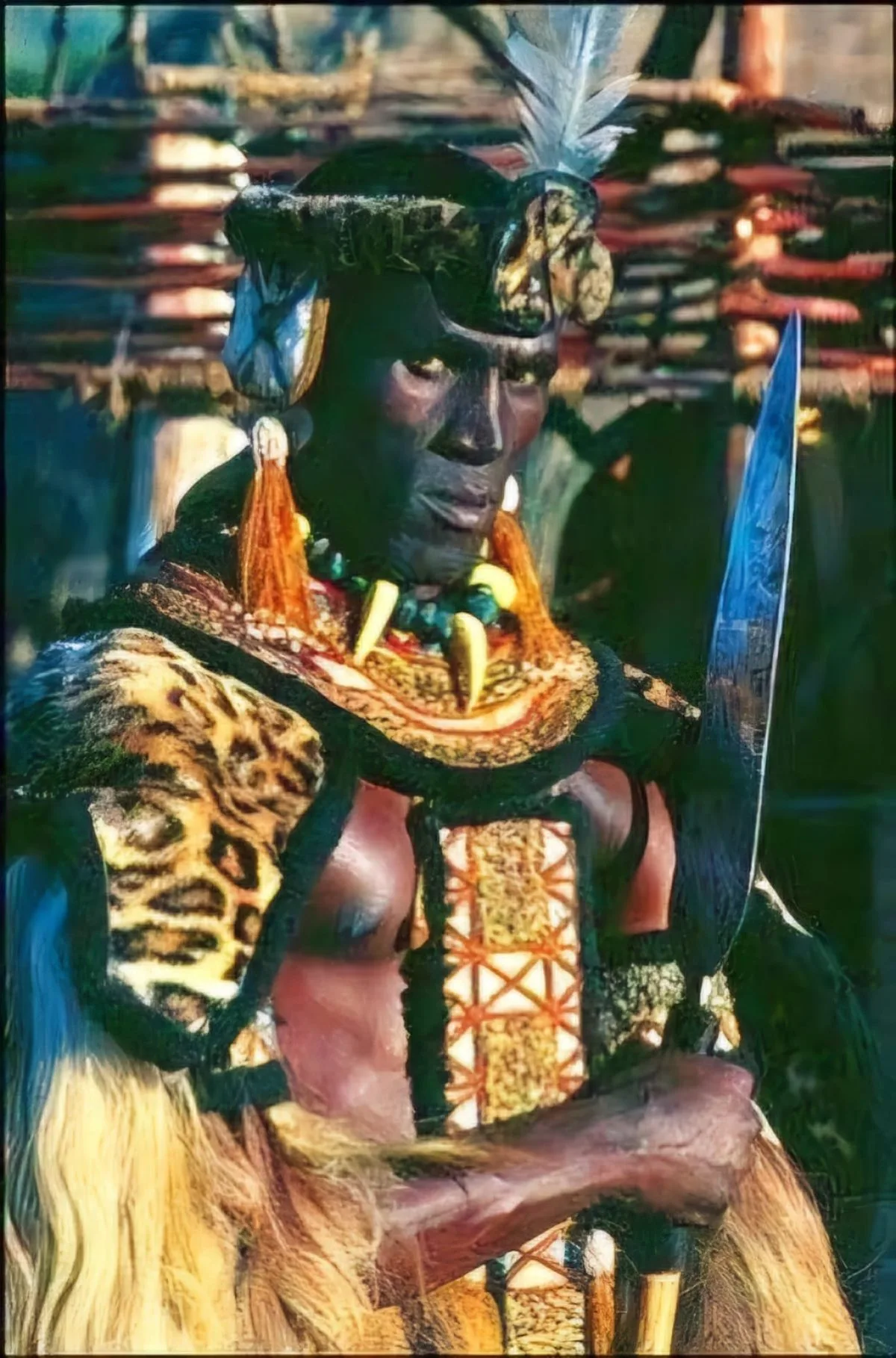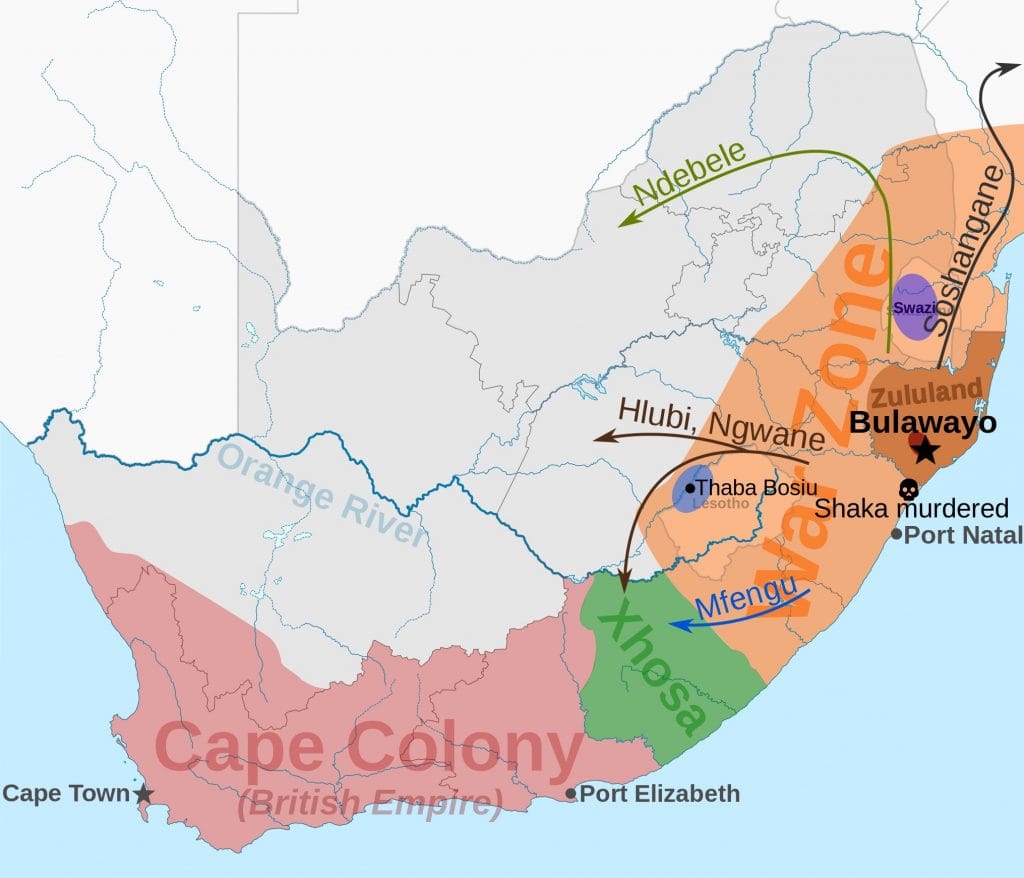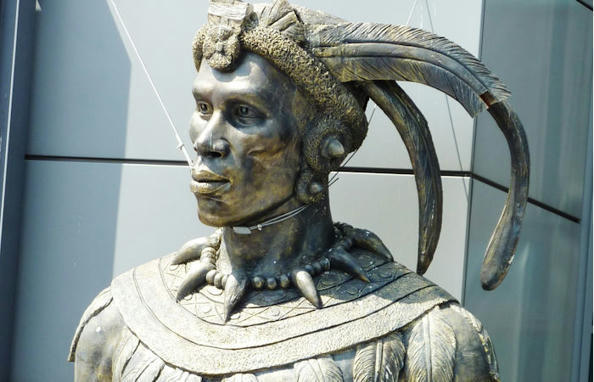Shaka Zulu remains one of the most formidable figures in Southern African history. A visionary leader and fierce military strategist, he reshaped the Zulu nation in the early 19th century, turning a small clan into a powerful kingdom. His life story is marked by determination, innovation, and a legacy that continues to provoke admiration and debate. From humble beginnings to commanding armies and transforming regional politics, Shaka’s impact on the course of African history is both profound and enduring.
Formative Years
Shaka was born in 1787 to Chief Senzangakhona and Nandi, a union that was initially shrouded in rejection. His father dismissed the pregnancy as a mere illness, distancing himself from any claim to the child. Eventually, Nandi was accepted as Senzangakhona’s third wife, but this acknowledgment offered Shaka little security or acceptance.
At just six years old, Shaka and his mother were forced to leave his father’s settlement. Life in Nandi’s village was no easier, marked by hostility and exclusion. Their fortunes changed when they sought refuge among the Mthetwa, where Shaka’s natural aptitude for warfare and leadership began to emerge. Recognized by the influential chief Dingiswayo, Shaka rose rapidly through the ranks, earning his reputation as a skilled and fearless warrior by his mid-teens.
Rise to Leadership

Shaka’s military success under Dingiswayo played a key role in his path to power. Despite being named heir by his father, he had to contend with his half-brother Sigujana for control of the Zulu clan. Leveraging both tactical insight and force, Shaka overcame Sigujana and claimed leadership. With Dingiswayo’s death, Shaka moved swiftly to consolidate control, uniting nearby clans and laying the foundation for a new and formidable Zulu state.
Redefining Warfare
Under Shaka’s command, Zulu warfare underwent a dramatic transformation. He emphasized mobility by requiring soldiers to go barefoot and replaced traditional spears with compact stabbing weapons ideal for close combat. Among his most effective strategies was the buffalo horn formation—an enveloping tactic that overwhelmed adversaries and secured numerous victories, cementing his status as a military innovator.
Nation Building
In 1816, Shaka launched a campaign to unify regional clans, eventually bringing together a population exceeding 250,000. His efforts led to the formation of a dominant Zulu kingdom that would stand as one of the largest political entities in Southern Africa. Though his methods often involved coercion, displacement, and conquest, Shaka succeeded in creating a structured and centralized state from a patchwork of independent communities.

Expansion and Discord
As Shaka’s territory grew, so too did his ambitions. His forces continued to push outward, subjugating resistant chiefdoms and incorporating compliant ones under appointed local leaders. This period of aggressive expansion brought wealth and power to the Zulu kingdom, but it also inflicted hardship on neighboring societies.
Shaka’s leadership remains the subject of intense debate. To some, he is the visionary who laid the foundations of the Zulu nation. To others, he is remembered for the destruction caused during the Mfecane—a decade marked by widespread conflict, migration, and disruption throughout the region.
Decline and Assassination
The death of Shaka’s mother in 1827 marked a turning point in his rule. Consumed by grief, his behavior grew increasingly erratic. He imposed extreme policies, including a ban on farming, which led to famine. Reports suggest he ordered the execution of pregnant women and their partners, accusing them of disloyalty—further deepening public discontent.

Amid mounting unrest, Shaka’s half-brother Dingane and a group of trusted insiders orchestrated his assassination. On September 22, 1828, during a moment of vulnerability and isolation, they struck. Shaka was killed and buried in an unmarked grave, his once-dominant rule ending in abrupt and violent fashion.
Though polarizing, Shaka Zulu’s impact on the history of Southern Africa is undeniable. His reign not only redefined military strategy but also altered the region’s social and political fabric, leaving a legacy that continues to echo through generations.


